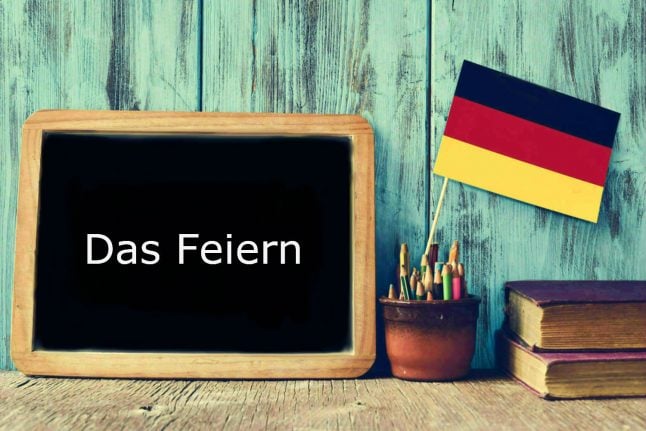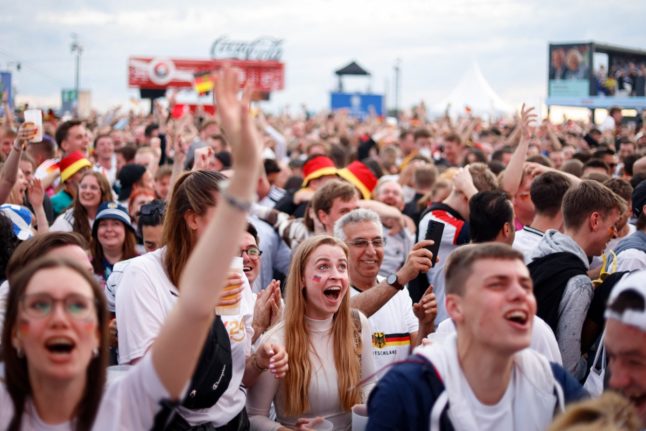What does “feiern” mean and how is it used?
The verb “feiern” has three core meanings: to celebrate, to party or celebrate, or to praise someone or something.
In the first sense, it refers to celebrating a cause – whether a person, wedding, birthday, or any festive and dignifying occasion.
In the second sense, it defines a cheerful get-together that does not necessarily have a purpose. Basically, it is just the act of partying for the sake of partying, and joyfully being together with others – going clubbing, for example.
A newer colloquial meaning
The last sense has a slightly different meaning. Here, “feiern” refers to delighting in or praising a person, action or thing.
In this sense the word is used colloquially and often with a humorous connotation such as how someone delights in a comedian, or finds the way his friend reacted to something funny.
READ ALSO: 10 ways of speaking German you'll only ever pick up on the street
Many young adults use this phrase very frequently, or even overuse it as it grows more popular.
The adjective “feierlich” also expresses that someone finds something amusing and funny, such as when you see someone trip or your dog drool.
Examples
“Am 9ten November 2019 haben wir 30 Jahre Mauerfall gefeiert.”
“On November 9th, 2019 we celebrate 30 years since the fall of the Berlin wall.”
“Lass mal heute feiern gehen.”
“Let’s go partying (clubbing) today.”
“Das ist total feierlich.”
“That’s so funny.”
“Ich feier ihn richtig”
“I really find him cool.”






 Please whitelist us to continue reading.
Please whitelist us to continue reading.
Member comments